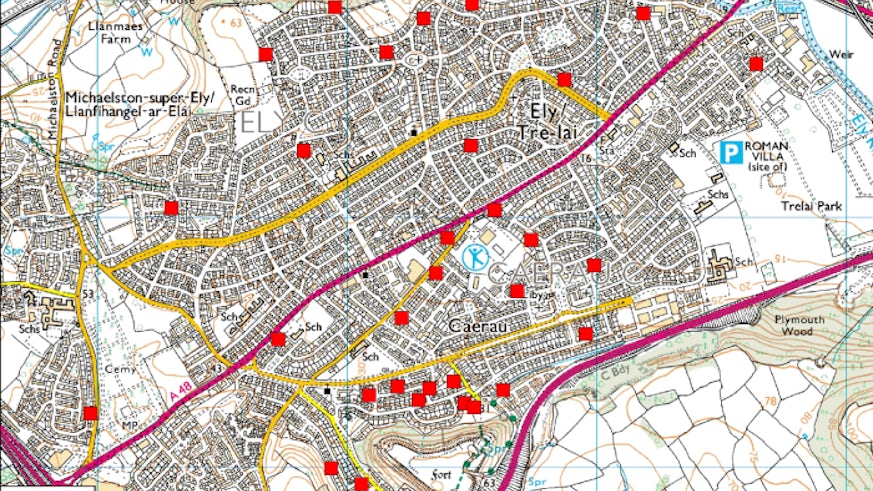Innovative archaeology in the time of the pandemic
4 February 2021

CAER Heritage Hidden Hillfort Project’s Big Dig and Cupboard Archaeology earns national recognition for innovative lockdown activities
Adapting its existing 2020 plans for lockdown, the award-winning CAER Heritage Hidden Hillfort Project adapted to the evolving Covid19 conditions, devising both the Big Dig and Cupboard Archaeology and its Heritage-focussed Food Parcel scheme to make a significant social and research impact despite the difficulties of the pandemic.
The creative community-focussed project has been recognised in the Council for British Archaeology’s Marsh Awards 2020, winning the Best Project with paid support category.
In the Big Dig, community members did their own archaeological mini digs in back gardens to tell the wider story of the area, putting the hillfort overlooking their homes into context.
All ages of the community unearthed their own finds supported by specially created expert instructions, identified by professional archaeologists from Cardiff and Lincoln University.
Yet more community members excavated the buried objects in their own homes for Cupboard Archaeology, to reflect on the stories behind the objects, posting biographies, so those without outdoor spaces could participate too.
And the heritage of the site inspired historic recipes for Heritage Food Parcels, delivered safely to participants in the wake of the rise of food poverty and foodbanks nationally.
The project reached more than 130 individuals in 39 households, and 30 year-five pupils from one local school with its archaeology focused activities. It reached a further 25 households with heritage food parcels every two weeks.
Established a decade ago, CAER Heritage focuses upon the research of Caerau Hillfort in a collaboration between Action in Caerau and Ely, Cardiff University, local schools, residents, community groups and many others in the west Cardiff suburbs of Caerau and Ely.
The evolving project adapted to the Covid-19 pandemic and its serious impacts, focussing on its community of Caerau and Ely, facing increased unemployment, with more families struggling both financially and socially like so many around the UK.
The CAER Big Dig activity enabled volunteers to carry out all five of the sorts of activity known to improve mental wellbeing: getting physically active, learning something new, connecting with others, making a contribution, and focussing on the moment.
With 100% of respondents feeling more engaged with local heritage and that the activity relieved some of social isolation of lockdown, and 85% reporting that participation had made them feel more positive about their situation, the social outcomes are significant.
Co-director Dr Oliver Davis said: "The project has really helped people connect with their local heritage and crucially helped to address real community need in these times of lockdown"
In research terms, Neolithic flint tools and Roman and Iron Age pottery finds suggest hitherto unknown prehistoric occupation in the area, while a raft of modern artefacts tell the modern story of the area, shared in blogs. In the near future, the discoveries will feature in a digital museum, showcasing findings for an even bigger global audience.
Participating archaeologist Carenza Lewis of Lincoln University, well-known to TimeTeam viewers, has witnessed the impact of the project first-hand:
“The CAER Heritage project has made a remarkable contribution during the Covid-19 pandemic. The projects didn’t only sustain volunteer engagement in archaeology, they were able actually to grow it, by reaching people and places not previously involved.
“The Cupboard Archaeology project enabled people unable to dig to connect with the ways in which physical objects help us understand the past, broadening their personal understanding of the historic environment. The Big Dig also advanced expert knowledge of the way the area around the prehistoric hillfort, Roman villa and former garden village were used in the past, something that was previously unknown.”
“All of this is would be impressive at any time, but so much more so in summer 2020 when lockdown made organising more difficult. What is most important, to me, is the way the CAER 2020 activities show the great and genuine care that this already award-winning archaeological initiative has for its community.”
